Is Your Insurance Roofing Claim at Risk After a Replacement
When you decide to replace your roof, it’s important to consider how this might affect any insurance claims related to it. Many homeowners focus on the immediate benefits of getting a new roof but overlook potential changes in their insurance policies. If you’re not careful, you could face unexpected issues with your insurance coverage. This guide will help you navigate the complexities surrounding insurance and roof replacements, ensuring that your claim is secure.
The Benefits of Replacing Your Roof
A new roof offers many advantages beyond just aesthetics. One of the primary benefits is enhanced safety for your home. A sound roof protects against leaks and weather damage, reducing long-term repair costs. Moreover, a new installation often increases property value, making it an excellent investment if you plan to sell. Improved energy efficiency is another advantage, as modern roofing materials can better insulate your home, leading to reduced heating and cooling expenses.
Common Challenges with Insurance Claims Post-Replacement
After a roof replacement, some homeowners may face challenges when filing insurance claims. Insurers might question whether a claim is valid, especially if they believe the need for repairs stems from improper installation. Additionally, policy adjustments may occur without clear communication, potentially leaving you underinsured. It’s crucial to understand these pitfalls to avoid complications down the road.
Ensuring Your Insurance Claim Stays Intact
To protect your claim after replacing your roof, ensure all aspects of the job are well-documented. This includes keeping receipts and warranties issued by the contractor. Also, before beginning work, notify your insurer about the planned replacement. Discussing how your premiums or coverage might change helps prevent surprises later. Choose licensed professionals for the job to assure quality and compliance with local building codes.
Best Practices for Maintaining Coverage
- Contact your insurer before starting any roofing project
- Verify contractor licenses and request detailed estimates
- Maintain records of all communications and agreements
- Conduct regular inspections to catch potential issues early
- Understand policy terms regarding maintenance requirements
Industry Standards You Should Know
When dealing with roof replacements, knowing industry standards can be beneficial. The International Building Code provides guidelines on roofing installation practices, ensuring safety and durability. Most insurers require adherence to these codes to validate coverage. Additionally, familiarizing yourself with local regulations can safeguard against future disputes over compliance or workmanship.
Financial Aspects to Consider
Cost is always a concern during roof replacement projects. While upfront expenses might seem high, the long-term savings in energy bills and maintenance can offset initial investments. When evaluating different roofing options, consider life expectancy and warranty offerings. Some insurers offer discounts for impact-resistant roofs or those made with eco-friendly materials, potentially lowering your overall expenses.
Your Next Steps for a Secure Insurance Claim
Securing your insurance claim post-roof replacement involves strategic planning and proactive measures. Contact us at (732) 402-6083 to explore how our services align with your needs. Based in Hazlet, NJ, we aim to support homeowners through every step of their roofing journey. At Hazlet TS Roofing and Siding, we commit to delivering trustworthy solutions tailored to preserve both your home’s integrity and financial peace of mind.
